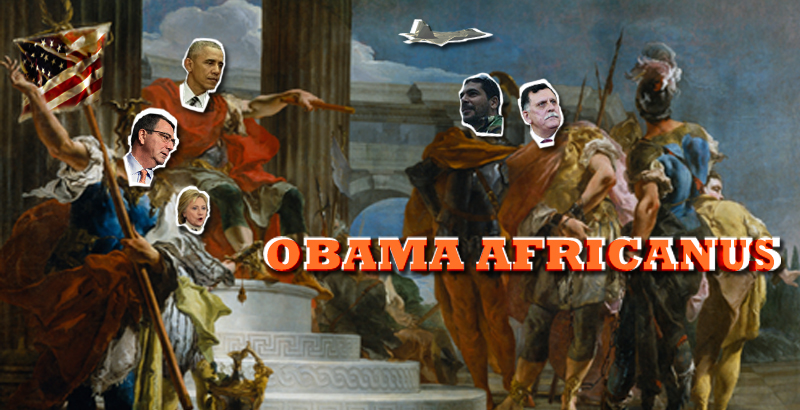Amid failures of the US-backed jihadists in Syria, the Obama administration is seeking for a PR victory aganist “terrorism” in Libya.

Edited by Desi Tozneva
Speaking on TV, the head of the National Consensus Government (NCG) of Libya, Fayez al-Sarraj, said that terrorists suffered heavy losses as a result of the US Forces’ strikes on the positions of the Islamic State’s (IS’s) group in Sirte. Sarraj also confirmed that the US air strikes were carried out in response to an appropriate request from the President’s Council of the NCG, which performs the functions of the supreme commander of the Libyan army. According to US Defence Department representative, Peter Cook, the number of IS terrorists in Libya has declined, reaching “up to thousands of people – most likely, a few hundred.” Earlier, numbers of up to 6,000 terrorists were cited.
These figures cause very serious doubts. According to local sources of information, in the best years, Libyan supporters of IS were represented by not more than 3,000 fighters in service on two fronts: in Derna and Sirte. Now, this number has dramatically decreased not because of the fact that the IS units were defeated by military means, but primarily due to the desertion of a significant number of terrorists, mainly natives of Misrata, whose militia has been assaulting Sirte with a different intensity for three months already.
Despite the claims that there are no American “boots on the ground” in Libya, the US Special Forces have been in Libya for the past three months already. The US Special Forces and the British Special Air Service (SAS) trained fighter groups from Misrata, and have now begun to choose targets for the US aircraft.
Despite the loud statements of Cook, the use of the US aircraft is evidence that the ground operation for the liberation of Sirte has fared badly. France has been preparing for this moment in advance, suggesting that Sirte would be liberated at the end of June this year, and predicting that IS supporters, knocked out of Sirte, will go to the south of Libya and then to the north of Mali.
Misrata fighters do not want to participate in urban combats and sacrifice themselves. They actually have nothing against the IS supporters, and their campaign of the offensive on Sirte was initiated in order to simply drive away IS units from the oil terminals in Ras Lanuf and Es Sidr. This is their main task, which is now being solved by Misrata and Tripolitania fighters; they do not want and are not going to fight together with the IS simply because it is the IS. In this regard, the US statements that they “support the anti-Islamist forces and organise the exchange of intelligence information with the government of Sarraj,” sound very naïve. Firstly, Misrata and Tripolitania fighters can hardly be called anti-Islamist forces because there are all spectrums of Islamist and jihadist currents in their movement, starting with the Muslim Brotherhood and ending with fighters of the former Libyan Islamic Fighting Group (LIFG). And secondly, the exchange of intelligence information with the government of Sarraj is difficult, due to the fact that the government does not have its own intelligence services and its own armed forces. Misrata fighters perform this role, but only when it coincides with their own interests.



